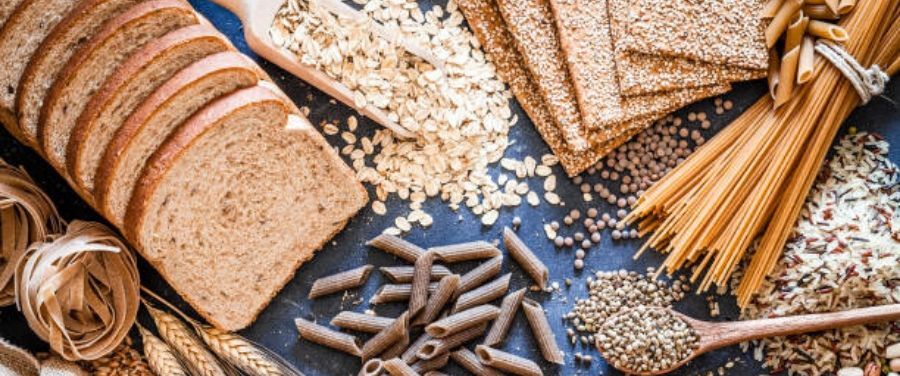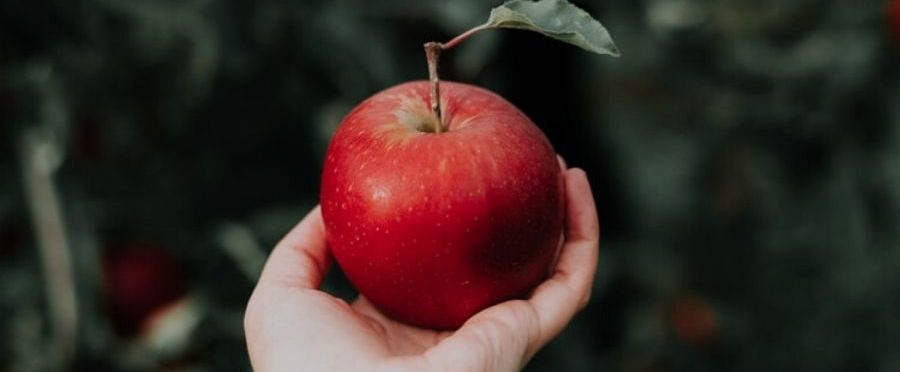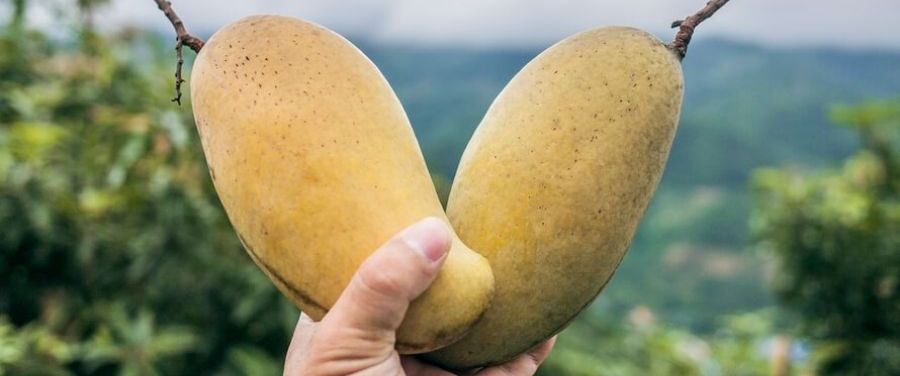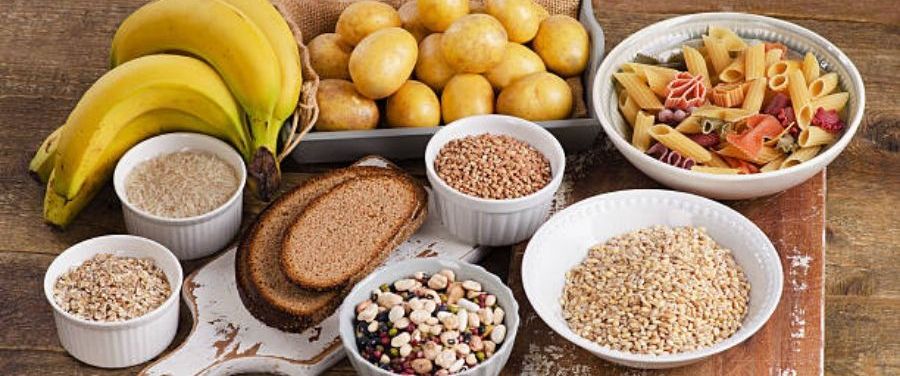In this age of competition everyone wants to be at the forefront. For this reason, healthy body and healthy mind is needed, for which nutritious diet should be practiced. One of these nutrients is carbohydrate. Like other nutrients, it is also beneficial for your body.
WHAT IS CARBOHYDRATE?
Like vitamins and minerals, carbohydrate is one of the main nutrient. It is a necessary source for providing energy to the body. Our digestive system converts carbohydrates into glucose. The cells, tissues and organs of our body use this glucose to get energy. Thus, carbohydrates can be beneficial for our body in many ways, such as – controlling cholesterol, giving the necessary energy throughout the body and helping the heart muscle and cells to function properly.
WHAT ARE THE THREE TYPES OF CARBOHYDRATES?
There are mainly three types of carbohydrates:
First, sugar is the simplest form of carbohydrate. Sugar occurs naturally in milk products, fruits, vegetables and many other foods. It is found in three forms, lactose, fructose, and sucrose. It provides necessary energy for daily activities.
Second, starch is the complex form of carbohydrate, naturally found in rice, beans, peas and other grains.
Third, fiber is also a complex carbohydrate like starch. Fiber rich diet helps in quick digestion. Fiber is found in some vegetables, whole grains, peas and dried beans, bran, soy beans, etc.
WHAT ARE THE MAIN FUNCTIONS OF CARBOHYDRATE?
Let’s understand the role of carbohydrates through the following points —
- Carbohydrate-rich food helps to keep your body healthy
- It provides energy to the body
- Fiber present in it controls obesity considered to be the root of many diseases associated with the digestive system
- Carbohydrate regulates harmful cholesterol, thereby reducing the risk of cardiovascular diseases
- It helps in controlling the sugar present in your blood
HOW MUCH CARBOHYDRATE YOU NEED?
Depending on your age, activity level, gender and overall health, carbohydrates requirements may vary. According to a study, about 45 to 65% of your total daily calories should come from carbs.

So, if you consume 2000 calories a day, approx 900 to 1300 calories should be from carbohydrates. An infant of 0 to 6 months require 60 gram carbohydrates per day, whereas 7 to 12 months old infant needs about 95 grams of carbohydrate daily.
Although there’s no specific recommended daily intake of carbohydrate for pregnant and lactating mothers, but an additional fuel is required to support the development, metabolism and growth of maternal and foetal tissues.
According to a research, diabetic adults should eat not more than 200 grams, whereas an adult should eat 135 grams of carbohydrate per day. Pregnant women require at least 175 grams of carbohydrates per day.
10 FOODS THAT ARE VERY HIGH IN CARBOHYDRATES:
So, let’s find out 10 surprising healthy carbohydrate foods:
1. Sweet Potatoes:
Sweet potato is a very healthy and nutritious food. One ounce (28 grams) of sweet potato provides 5.8 gram of carbohydrates.

In addition, the same serving size also contains about 25 calories, 10.6 mg calcium, 7.6 mg magnesium, 15 mg phosphorous, 133 mg potassium and 10 mg of sodium.
Researches state that some of the carbs molecules in purple sweet potatoes may also have antioxidant and anti-tumor benefits. It also helps to increase immunity, control blood pressure and reduces stress.
2. Brown Rice:
Brown rice are beneficial for your health in many ways. The carbohydrate found in it may prove beneficial in reducing the amount of sugar present in the blood. It can help you to control diabetes by reducing the level of sugar. Per 100 grams of brown rice contains about 78 grams of carbohydrates.
In addition, the same serving size contains 8 grams protein, 4 grams fiber, 120 mg magnesium and 2.4 mg of zinc.
3. Bananas:
Banana is considered as super energy food. Doctors believe that eating a banana before a workout gives enough energy to your body, so that you can do a better workout in the gym.

It is an important source of carbohydrates as well as energy, potassium, vitamin-B6, vitamin-C and other nutrients. Bananas are widely available and may be a great option for morning breakfasts. One medium sized banana contains about 27 gram of carbohydrates.
4. Apples:
An apple a day keeps the doctor away. It contains potassium, fiber and vitamin A and vitamin C. One medium sized raw apple (with skin) contains about 25 grams of carbohydrates.

It is also rich in vitamins A, C, K, calcium, magnesium and phosphorous. Apple also helps to reduce the risk of diabetes, stroke and lowering levels of bad cholesterol.
5. Dates:
Dates are yummy, nutritious and a rich source of carbohydrates. This fruit contains plenty amount of protein, fiber, calcium, potassium, zinc and copper. Per 100 gram fresh dates contains about 277 calories, 75 gram carbs and 2 grams of protein.

6. Mangoes:
The fruit is delicious in taste and rich in healthful carbohydrates, vitamin A, B6, C, E, K, calcium, fiber, magnesium, potassium and phosphorous. One cup (165 gram) of sliced raw mango contains about 28 grams of carbohydrates.

You can add this yummy and ready to eat fruit to your breakfast cereals.
7. Corn:
Corn is an another good source of carbs. Per 100 grams of yellow corn provides about 74.3 grams of carbohydrates, which is 25 percent of your daily need.

In addition, the same serving contains 365 calories, 9.4 gram proteins, 214 IU vitamin A, 7 mg calcium, 7.3 gram fiber, 2.7 mg iron, 127 mg magnesium, 210 mg phosphorous, 287 mg potassium, 35 mg sodium, 2.2 mg zinc and 4.7 gram of total fat.
Research states that corn is also beneficial for blood sugar levels and high blood pressure.
8. Quinoa:
Quinoa is rich in healthy carbs. It helps to control weight because it is high in protein and fiber. It also may help you to control blood sugar levels. Its one cup serving (185 gram, cooked) provides 39.4 grams of carbohydrates, which is about 13 percent of your daily carbohydrates need.

Same serving of quinoa contains 8 gram protein, 5.2 gram fiber, 31.5 mg calcium, 2.8 mg iron, 118 mg magnesium, 281 mg phosphorus, 318 mg potassium, 2 mg zinc and 13 mg of sodium.
9. Beets:
It is a sweet and purple root vegetables. You can eat this vegetable either raw or cooked. One cup (136 gram) raw beets provides 13 grams of carbs, which is about 4 percent of daily recommended value.

The same amount also contains 21.8 mg calcium, 3.8 gram fiber, 1.1 mg iron, 31.3 mg magnesium, 54.4 mg phosphorus, 442 mg potassium, 106 mg sodium and 34 mg of phytosterols.
It is also a good source of vitamin A (44.9 IU), vitamin C (6.7 mg) and vitamin K (0.3 mcg). This root vegetable provides individuals with naturally occurring inorganic nitrates that is prove to be beneficial to heart health.
10. Oats:
Research reveals that oats can benefit individual’s cardiovascular health. Per one cup (156 g) of oats provides 103 gram of total carbohydrates, which fulfills about 34 percent of daily need of carbohydrate.

Same serving size also contains 607 calories, 84.3 mg calcium, 7.4 mg iron, 26.4 gram protein, 276 mg magnesium, 816 mg phosphorus, 669 mg potassium, 6.2 mg zinc and 7.7 mg of manganese.
REFERENCES
- MedlinePlus Medical Encyclopedia: US National Library of Medicine; https://medlineplus.gov/carbohydrates.html
- Joanne Slavin, Justin Carlson. Adv Nutr. 2014 Nov; 5(6): 760–761. https://www.ncbi.nlm.nih.gov/pmc/articles/PMC4224210/ PMID: 25398736
- Sugar Research Advisory Service. https://www.srasanz.org/sras/basics-sugar/sources-sugar/
- Afaghi A, O’Connor H, Chow CM. High-glycemic-index carbohydrate meals shorten sleep onset. https://www.ncbi.nlm.nih.gov/pubmed/17284739 Am J Clin Nutr. 2007 Feb;85(2):426-30. PMID: 17284739
- American Diabetes Association. Which Foods Have Carbs? http://www.diabetesforecast.org/2015/may-jun/which-foods-have-carbs.html
- National Institute of Diabetes and Digestive and Kidney Diseases : US Department of Health and Human Services; Carbohydrate Counting & Diabetes. https://www.niddk.nih.gov/health-information/diabetes/overview/diet-eating-physical-activity/carbohydrate-counting
- Jéquier E. Carbohydrates as a source of energy. Am J Clin Nutr. 1994 Mar;59(3 Suppl):682S-685S. https://www.ncbi.nlm.nih.gov/pubmed/8116550 PMID: 8116550
- Janice Hermann. Carbohydrates in the Diet. Division of Agricultural Sciences and Natural Resources. Oklahoma State University. https://www.ncbi.nlm.nih.gov/pubmed/8116550
- Monica Hunsberger et al. Dietary Carbohydrate and Nocturnal Sleep Duration in Relation to Children’s BMI: Findings from the IDEFICS Study in Eight European Countries. Nutrients. 2015 Dec; 7(12): 10223–10236. https://www.ncbi.nlm.nih.gov/pmc/articles/PMC4690081/ PMID: 26670249
- Williams C. Macronutrients and performance. J Sports Sci. 1995 Summer;13 Spec No:S1-10. https://www.ncbi.nlm.nih.gov/pubmed/8897314 PMID: 8897314
- Burke LM, Loucks AB, Broad N. Energy and carbohydrate for training and recovery.. J Sports Sci. 2006 Jul;24(7):675-85. https://www.ncbi.nlm.nih.gov/pubmed/16766497
- Burke LM, Kiens B, Ivy JL. Carbohydrates and fat for training and recovery. J Sports Sci. 2004 Jan;22(1):15-30. https://www.ncbi.nlm.nih.gov/pubmed/14971430 PMID: 1497143
- Better health channel. Department of Health and Human Services. State government of Victoria; https://www.betterhealth.vic.gov.au/health/healthyliving/fibre-in-food
- National Health Service. UK; The truth about carbs. https://www.nhs.uk/live-well/healthy-weight/why-we-need-to-eat-carbs/
- Costill DL. Carbohydrate for athletic training and performance. Bol Asoc Med P R. 1991 Aug;83(8):350-3. https://www.ncbi.nlm.nih.gov/pubmed/1816789 PMID: 1816789
- U.S. DEPARTMENT OF AGRICULTURE. https://fdc.nal.usda.gov/fdc-app.html#/food-details/448566/nutrients; Hannaford Bros. Co.
- U.S. DEPARTMENT OF AGRICULTURE. https://fdc.nal.usda.gov/fdc-app.html#/food-details/362759/nutrients; FDC ID: 362759
- Nutrient Reference Values for Australia and New Zealand. Ministry of Health. https://www.nrv.gov.au/nutrients/carbohydrate
- Nutrition and healthy eating. Mayoclinic. https://www.mayoclinic.org/healthy-lifestyle/nutrition-and-healthy-eating/in-depth/carbohydrates/art-20045705?pg=2
- MedlinePlus Medical : US National Library of Medicine; https://medlineplus.gov/ency/article/002469.htm
- MedlinePlus Medical : US National Library of Medicine; https://medlineplus.gov/ency/patientinstructions/000321.htm.

I agree with you
Thanks Dion Madson.